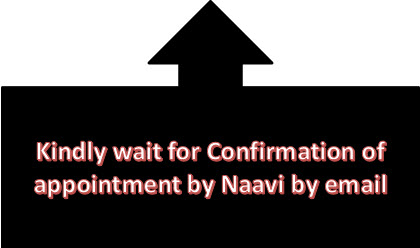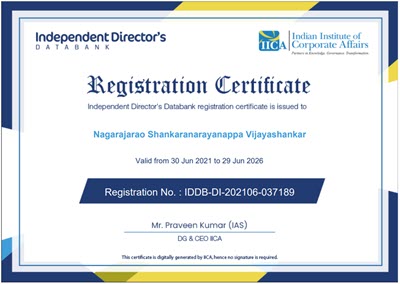
Cyber Society of India, Chennai conducted a seminar in Chennai on 20th May 2023 to discuss Section 65B of Indian Evidence Act . The seminar held at the Anna University Centenary Library was attended by over 120 participants. Many legal luminaries attended the seminar and also participated in the Panel Discussion lead by the senior Advoate Thyagarajan, and assisted by Advocate Karthikeyan, Balu Swaminathan, Retired DySP, and Technology experts like Vijaykumar.
(The details of the seminar with videos will be available on CySi website later).
I am adding this article here to answer some of the queries that were raised during the seminar particularly citing the Arjun Panditrao judgement. I hope it would add to the volume of information already available in this website.
This section came into effect in India on 17th October 2000, when ITA 2000 was notified. It was an insertion into the Indian Evidence Act consequent to the passage of ITA 2000 and is a procedural code on admissibility of t Electronic Document in a Court of law in India.
Essentially Section 65B creates a condition precedent before admission of any electronic record as a statement in a Court that a human being has to provide a certificate as per Section 65B.
Unfortunately even after 23 years of the existence of the law, the legal community and the judicial community is not clear about why this certificate is required, who has to provide the certificate etc.
Naavi presented the first Section 65B certificate in the case of Suhas Katti in the year 2004. The Court admitted the evidence and proceeded to hand out the historical first judgement in India under ITA 2000 convicting Suhas Katti for a message posted on Yahoo group.
Subsequently the Afzal Guru case in the Supreme Court in 2005 diluted the requirement of Section 65B Certificate and it was only in 2014 during the Anvar Vs Basheer judgement that the mandatory nature of Section 65B certificate was reiterated.
Since then there have been a consistent effort from different sources to nullify this judgement. First a two member bench of the supreme court (Shafi Mohammad case) tried to provide a “Clarification” to the Anvar judgement which was a three member judgement. Then another three member bench in the case of Arjun Pandit Rao categorically stated that the Shafi Mohammad judgement was wrong.
However the three member Arjun Pandit Rao judgement introduced one more element of doubt in the minds of the community by stating that “the required certificate under Section 65B(4) is unnecessary if the original document itself is produced.” (Para 32 of the first part of the judgement).
In the seminar, there was one section of the legal community which was perturbed with the insistence of Section 65B certificate in the trial proceedings and wanted the section to be removed because of the difficulties it is creating in the trial process.
I would like to re-iterate that “Electronic Documents” can be easily manipulated and fake evidence created to fix any innocent person. Hence the Section 65B Control which requires one human to take the responsibility for the document is essential and for this purpose, the mandatory nature of the requirement should not be tampered with.
The confusion regarding Arjun Pandit Rao judgement about the “Original” document arises because we often confuse the container of an electronic document with the electronic document and considers the hard disk as a “Original”.
Even assuming that the hard disk is the “First Electronic Imprint of an evidentiary sequence of binaries which constitutes an evidence” and it is available to the Court and therefore we can say that the “Original” lies inside the hard disk, the Judge cannot take it as an evidence unless he connects the hard disk to a processor and a monitor with key board, speaker etc running on an operating system, Bios and an application. All these hardware and software usage is influencing the evidence as being read by the Judge and the choice of what software and hardware to use becomes his choice. Hence the Judge would be creating an expression of evidence by his own decisions.
Hence the reading of the evidence by the Judge from the “Original” hard disk will be unacceptable as evidence. If however a third party renders a Section 65B certified “Computer Output” where he provides the details of how he read the document , then the Judge can accept it as evidence and proceed. This is the essence of “Admissibility” which Section 65B provides.
As Anvar vs Basheeer judgement has clarified, the “Genuinity” can still be disputed with counter evidence by the defence and the Court can come to its own decision. The Court has the ultimate power to either accept the Section 65B certificate provided by the presenter or the challenger without holding any of them as “Malicious” or “Fake” but only because the perspectives of the two certifiers were different.
There will be occasions when a letter draft is stored by a person on a computer and is printed out and thereafter the letter is physically signed. This refers to a case where the letter content is owned by the signer and in such a case there is no need for Section 65B certificate because the evidence is the printed letter and not the electronic document.
Section 65B certificate becomes relevant when a person who is not the owner of the content certifies that such content exists in electronic form on a computer and he took a copy of the same and certified it under Section 65B procedure so that it can be admitted as evidence without production of the original.
This should provide clarity to the doubt created by Arjun Pandit Rao judgement.
For rest of clarifications, kindly go through the videos or articles already present in this website.
Naavi
[P.S: Kindly check for a detailed analysis of Section 65B in this previous article at naavi.org as also this article on ShafiMohammad]









